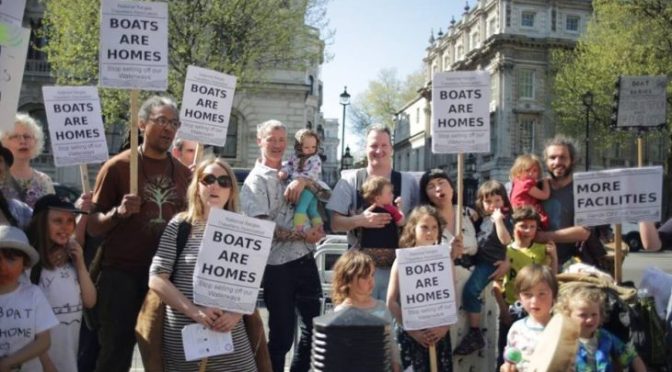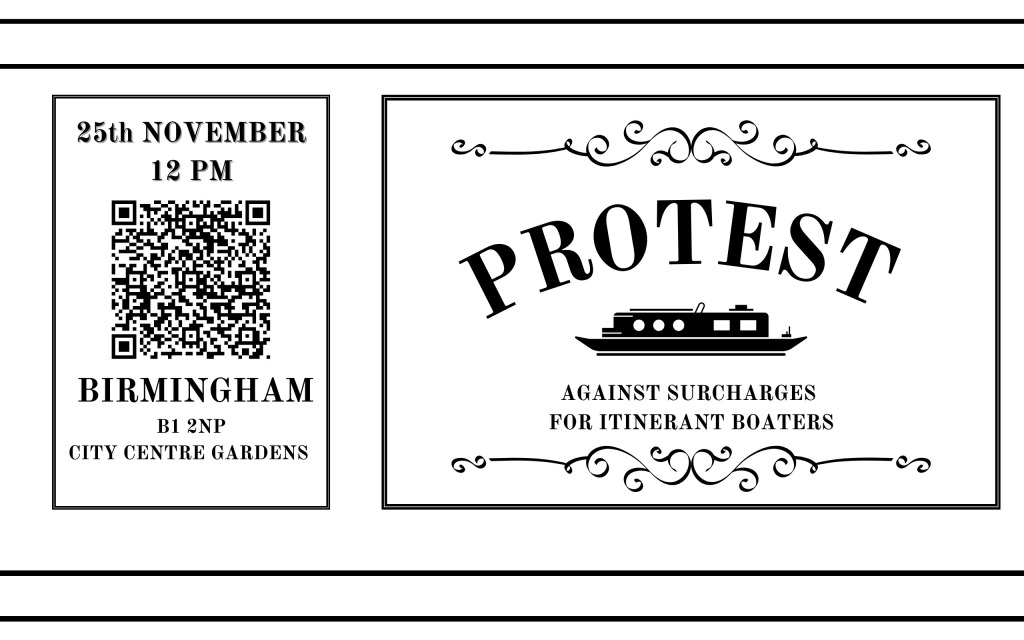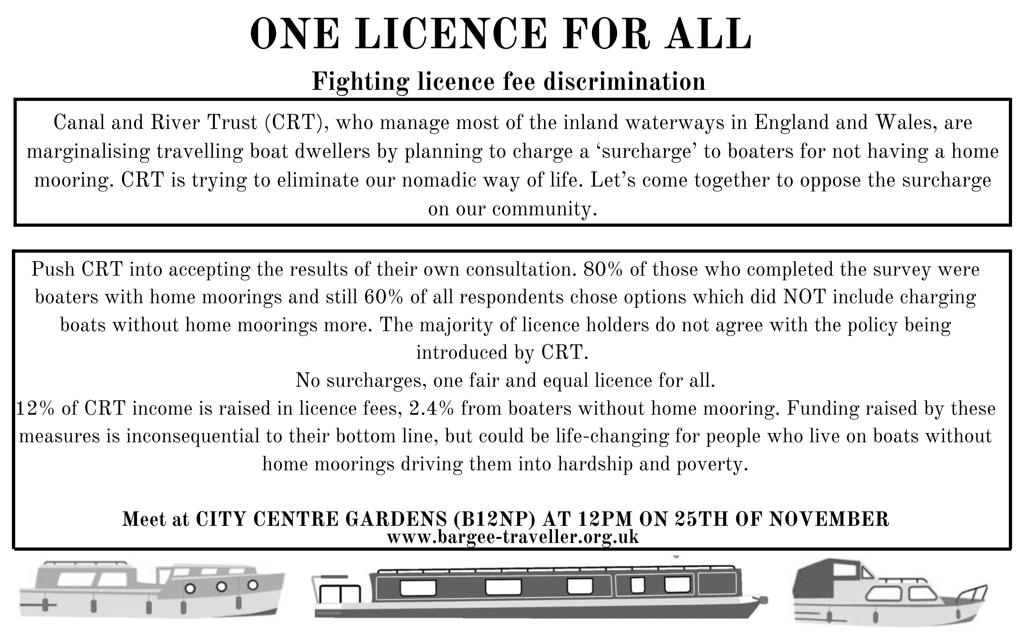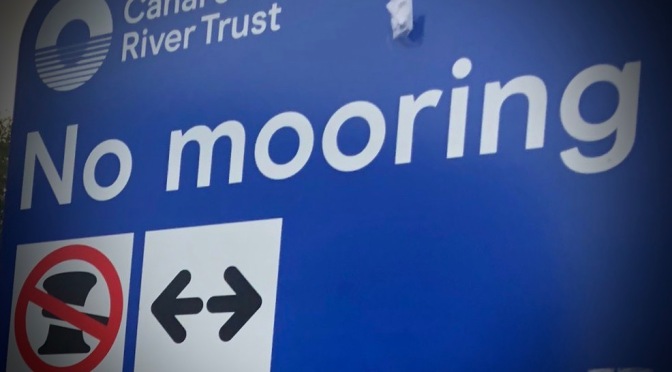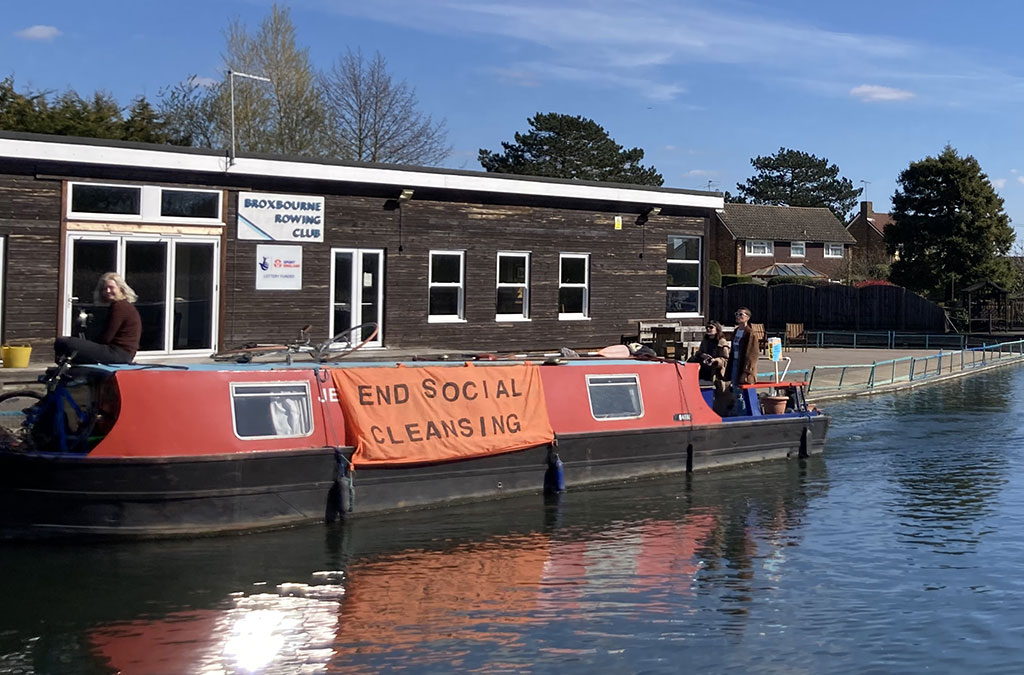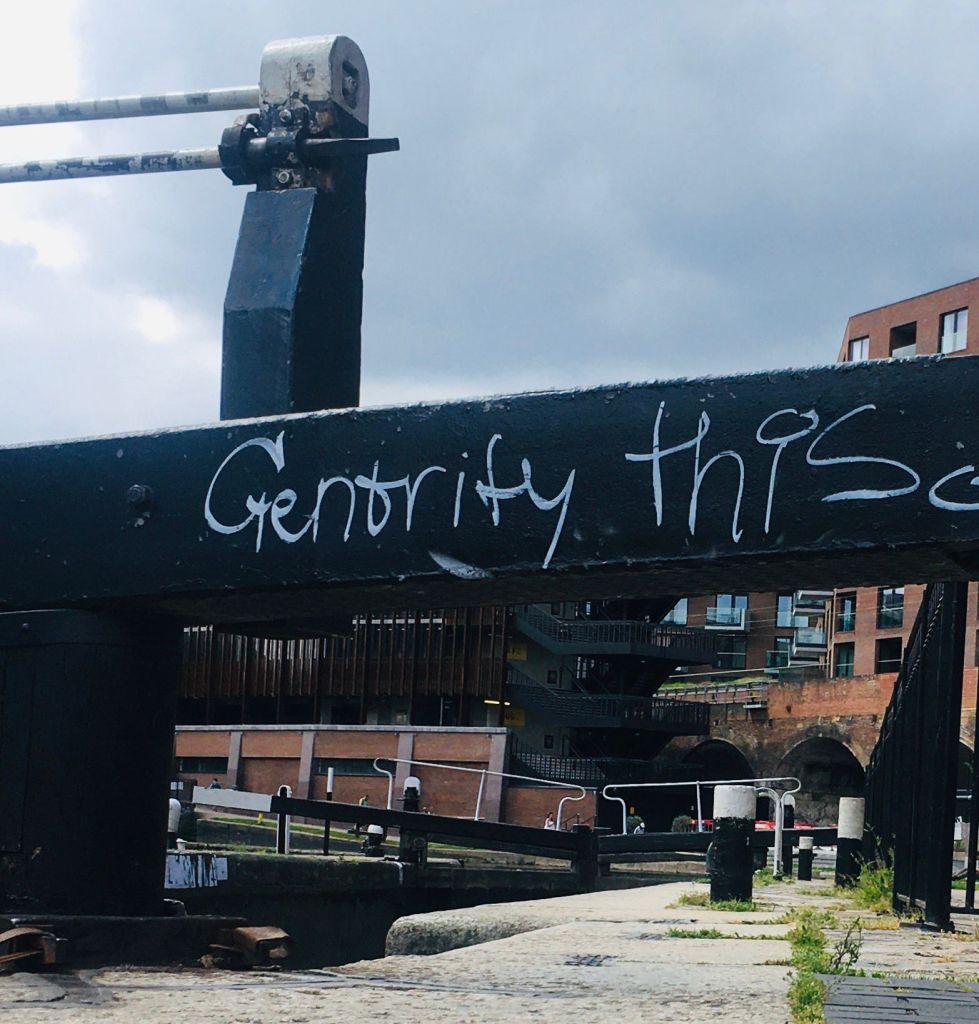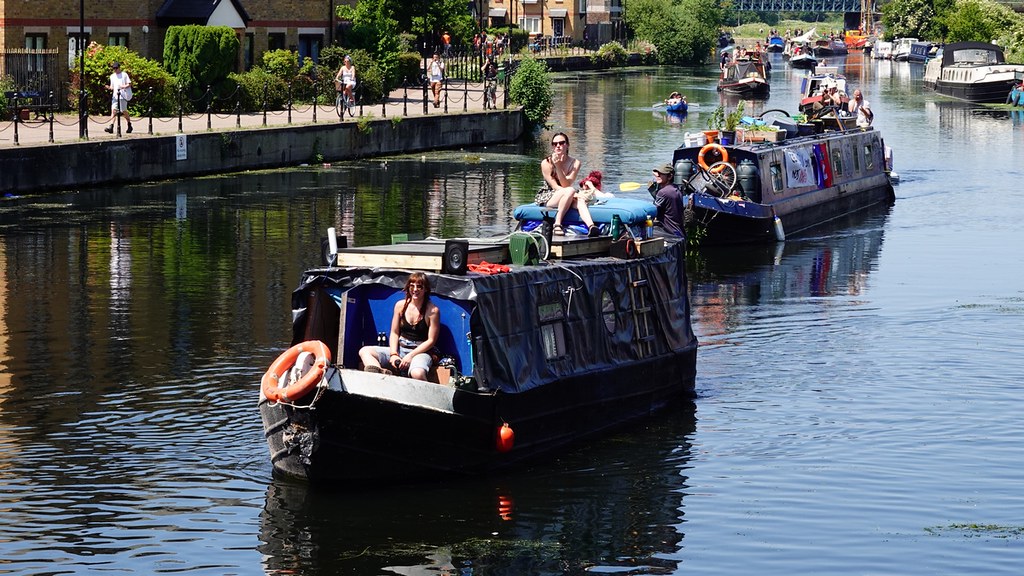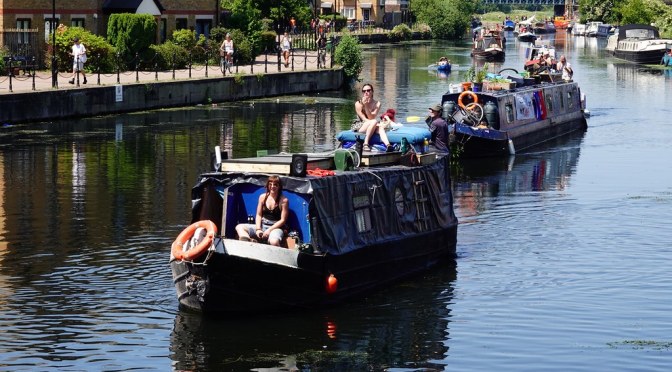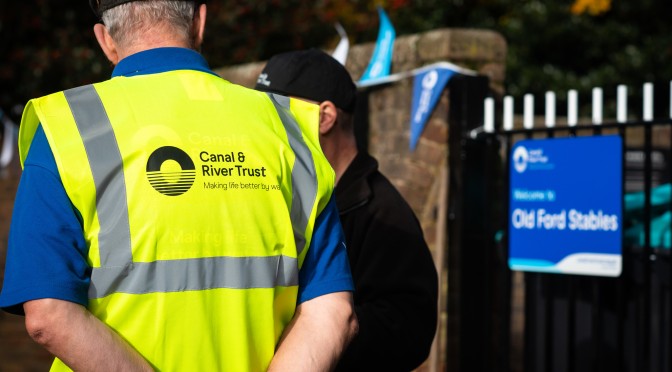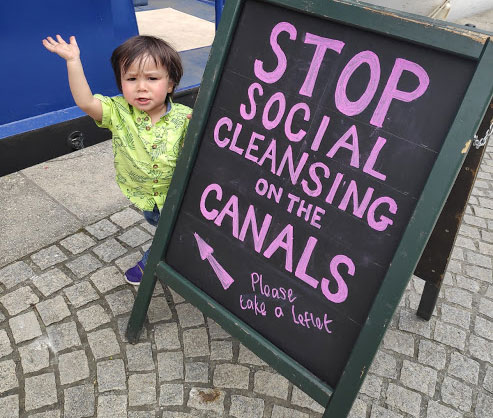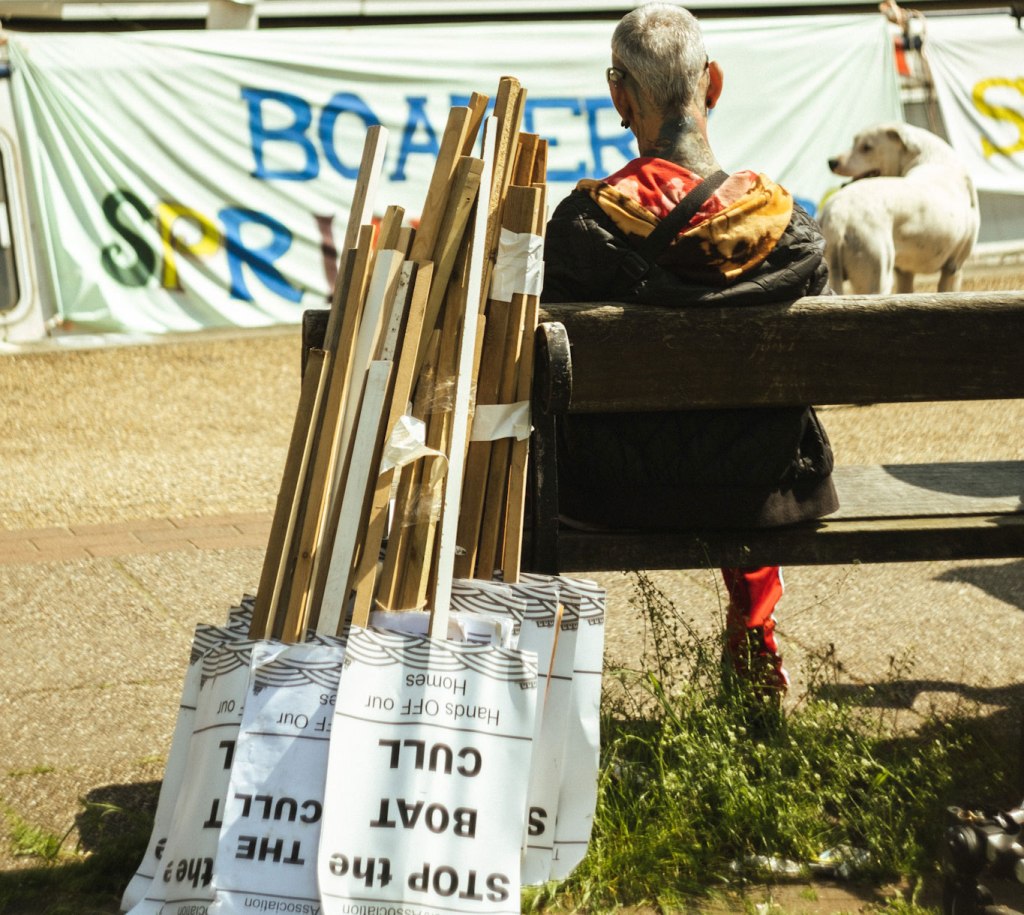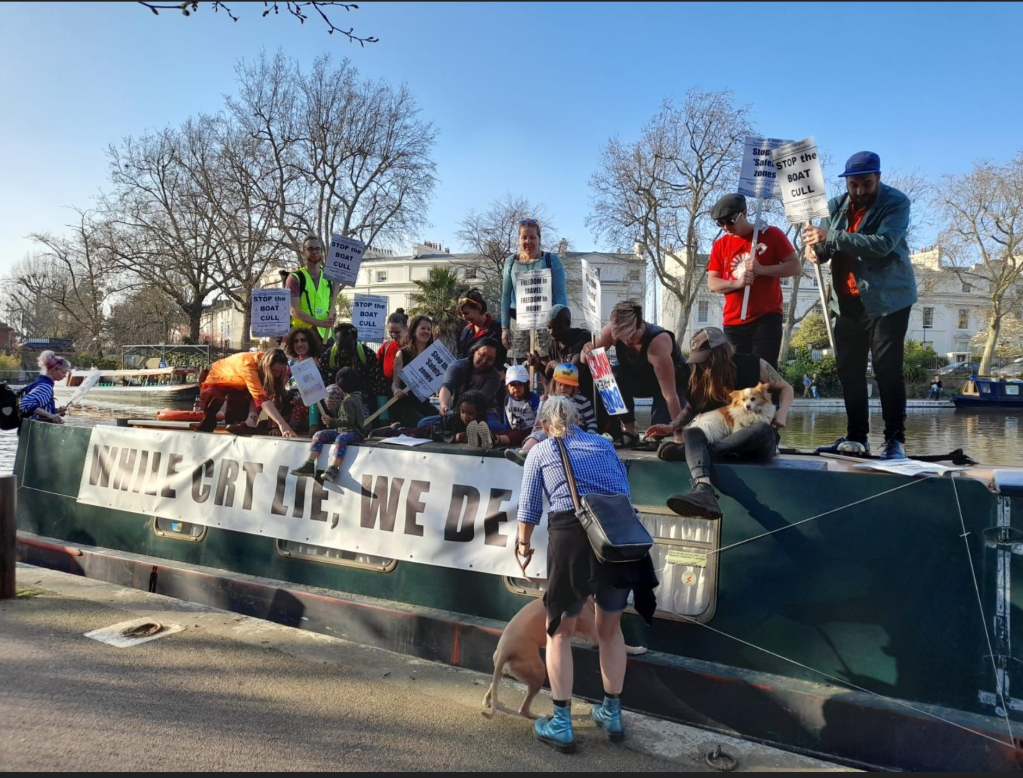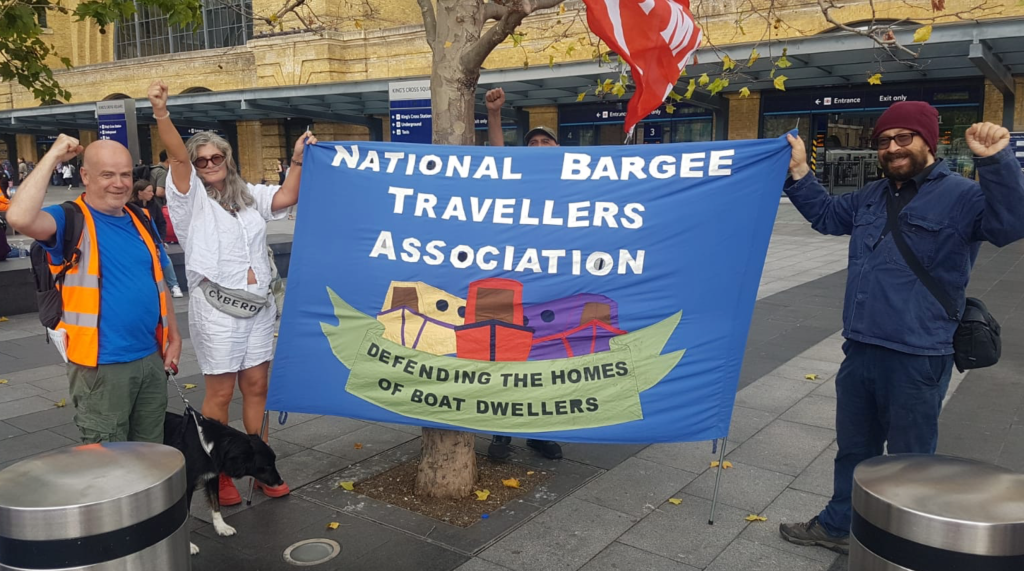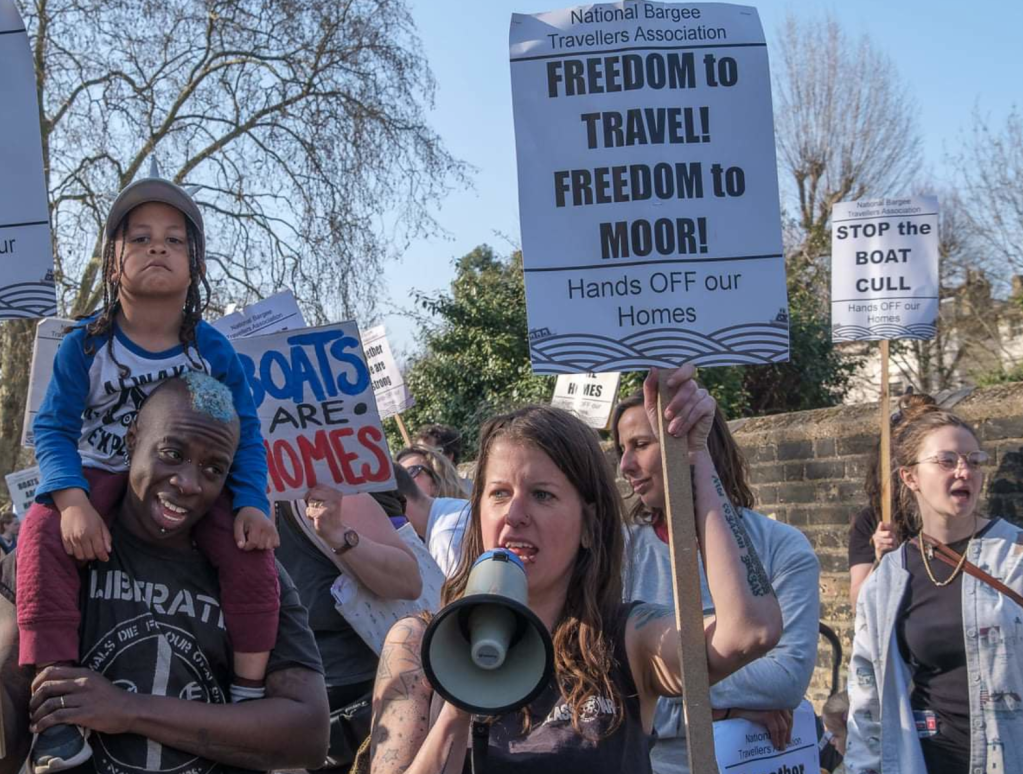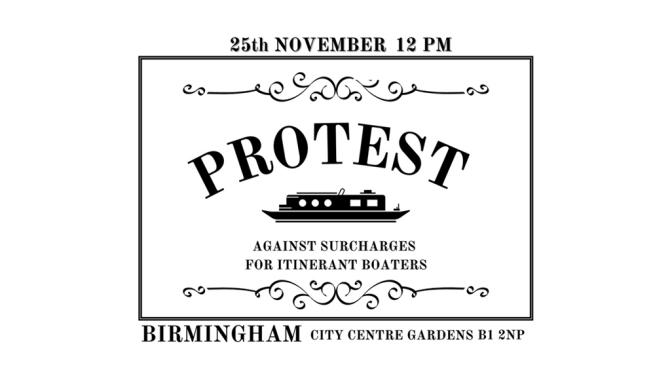Itinerant boaters have yet again become moving targets for CRT, this time with the excuse being financial – the weight of their budget shortfall is to be somehow paid for by surcharging the licence of boaters without home moorings an escalating amount over 5 years. With only 2% of CRT income coming from boaters without permanent moorings, the new surcharge is relatively inconsequential for them, but potentially life-changing for a largely marginal community of itinerant boaters, some of whom face being priced off the waterways they call home. Dividing boaters into multiple sub-groups, and setting us against each other regarding who should subsidise the other, doesn’t raise finance, but rather helps them rid the waterways of the undesirable, financially insecure travelling boaters they resent having to accommodate. Boaters are coming together, resolved to defend our way of life and demand the continuation of one licence for all.
It’s not about the money.
Are CRT serious about their finances, or the canals, at all? It is simply not feasible, or financially sound, for boaters without home moorings to subsidise canal use for those who can afford home moorings. To illustrate the short-sightedness and imbalance of this proposal, an alternative annual 1% increase above inflation across all boat licences would generate more income – AND without heartlessly and knowingly driving many pensioners and low-income earners who live on boats without home moorings into hardship and poverty. An increase of 2% across all licence holders would raise double the revenue!
In fact, it’s more likely that this initiative will lose money on balance – unaffordable licence costs lead to more defaulting and unlicensed boats – criminalising their inhabitants and costly Section 8 1983 British Waterways Act ‘canal eviction’ proceedings – at £10,000.00 each by latest estimates.
We believe this is discrimination.
A brief look at the past suggests this is part of a longer history of discrimination. For decades, waterways management have been trying to rid the navigation of itinerant boaters:
- In the Bill which became the British Waterways Act 1995, British Waterways (the state-owned predecessor of CRT) wanted it to be a criminal offence to keep a boat on the waterways without a home mooring.
- In 2002 in an attempt to encourage itinerant boaters onto moorings, they proposed a licence for boats without home moorings at 2.5 times the normal licence price.
- Enforcement strategies to make boaters travel 120 different lock-miles every 3 months without turning back were entertained in 2003.
- In 2005 the proposed increase for boats without a home mooring was 147%.
- In 2008, proposals to increase the tariff by £150 were again successfully challenged.
- Rather than implement an increase in 2017 which would be “fairer and less complicated” in charging us more, they halved the early payment discount, put a surcharge on wider boats and have been replacing miles of moorable towpath into chargeable moorings and introducing over-zealous ‘safety zones’ ever since.
Why have their efforts always failed? Because, aside from being discriminatory, impractical and unpopular, they are also unlawful. Section 17(3)(c)(ii) of the British Waterways Act 1995 enshrines in law “the right of all licence holders to use and live on a boat without a home mooring”. The licence comes first, not the circumstance in which you use it.
They’ve had more than enough time, and knowledge to prepare for this.
They’ve always known government funding was going to end, and they’ve had much longer than planned – and more funding – to transition to a self-sustaining model. Instead of using the time to make best use of their sizeable endowment from the state, they have mismanaged and wasted their resources, outsourcing key functions at massive cost, asset-stripping and prioritising ostensibly charitable initiatives that don’t make financial sense, such as public volunteering and failed fund-raising. Using the upcoming reduction in funding and their inability to respond ethically to rising boat numbers on the canals, they’re disingenuously playing the victim, and using it as pretext to turn on their old punch bag yet again – itinerant boaters.
CRT is making unsubstantiated claims about the impact of our way of life.
Claims regarding itinerant boaters enjoying “greater utility in use of the network” and “greater impact on ageing infrastructure” are not backed up by any evidence and do not reflect real experiences of the waterways – demonstrating further CRT’S disconnection from the realities of the public infrastructure they are responsible for.
There is no proof itinerant liveaboard boaters put more strain on the network’s facilities than other boaters. In fact, seasonal and leisure boaters with home moorings – and to a greater degree holiday hire boaters – are likely to have an equal or heavier toll on facilities and infrastructure, as they lack experience and treat the waterways as someone else’s problem when things aren’t looked after. Many also travel further, and with more people on board, which also takes its toll..
In addition – due to inconsistent availability and frequent malfunctioning of CRT facilities – we often use private facilities for water, waste disposal and rubbish. We are not enjoying the services we already pay for, and are aware of proposals to reduce services further.
We’re an asset to the waterways in ways that CRT refuse to acknowledge.
Evidence and simple logic suggest facilities are better off with us using them year-round – (such as preventing the wood in lock gates drying out and cracking and steel mechanisms rusting during winter) and regularly reporting wear and tear, and often even doing maintenance ourselves (removing fallen trees or cutting back foliage in under-maintained areas).
Looking further back, much of the waterways network was un-navigable in the 70s and 80s – it was predominantly itinerant boaters who opened it up and now keep it moving. We bring safety and community to previously no-go areas of cities and the countryside. We’re a unique
feature of canals across the UK, and a part of the ecosystem, keeping the canals alive – without us they would be desolate and falling into disrepair.
CRT hide behind public misunderstanding of their ‘charitable’ status, and manipulated data from a flawed public survey.
Data from CRT’s own ‘consultation’ survey which they used to justify this licence surcharge showed that – despite the biased and misleading way questions were phrased – still a majority of 60% of boaters chose options which did NOT include charging boats without home moorings more – they have manipulated the results to make a case for a discriminatory tariff on our way of life.
What do they really want?
CRT (and BW before them) seem to wish to socially cleanse and curate the waterways for luxury, leisure, affluent mooring cost premiums, especially in urban areas, turning them into un-navigable leisure resorts for walkers and cyclists only. This in the context of wider social dispossession, underfunding of public services, and widening inequality – with the poor and marginalised subsidising the rich and secure.
What do we want?
We’d like recognition of the value itinerant boaters contribute to the waterways, decent services for the money we already pay, and one set of increases applied equally and fairly to all.
Generating finance fairly ought to be within the remit of a charitable trust. The proposed surcharge and its rationale are insincere political manoeuvres designed to segregate and marginalise travelling boaters, with no serious concern for canal management finances at all.







